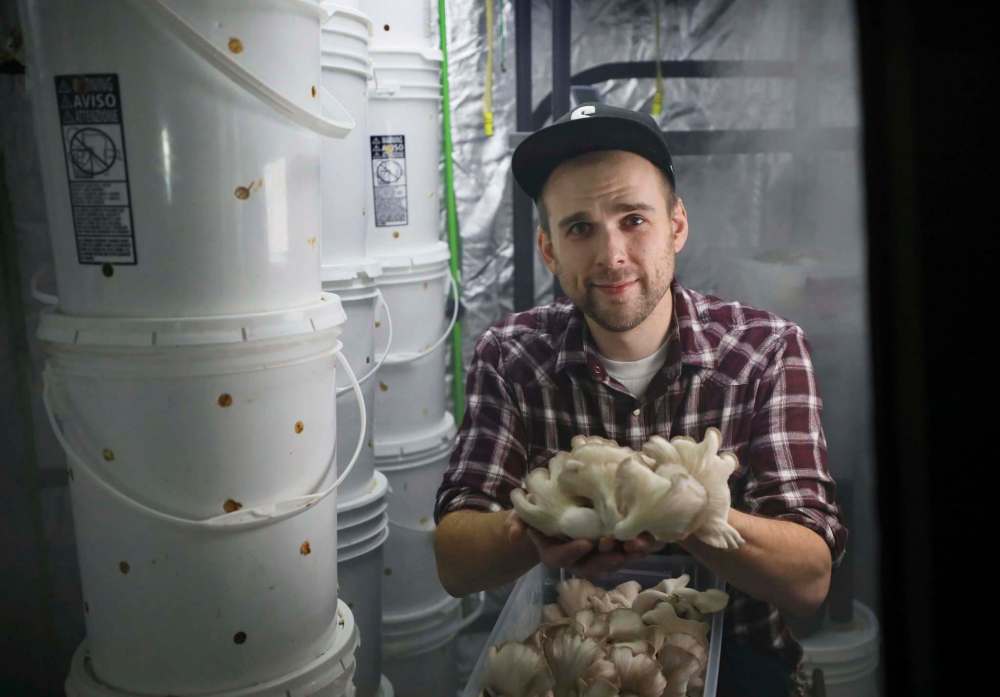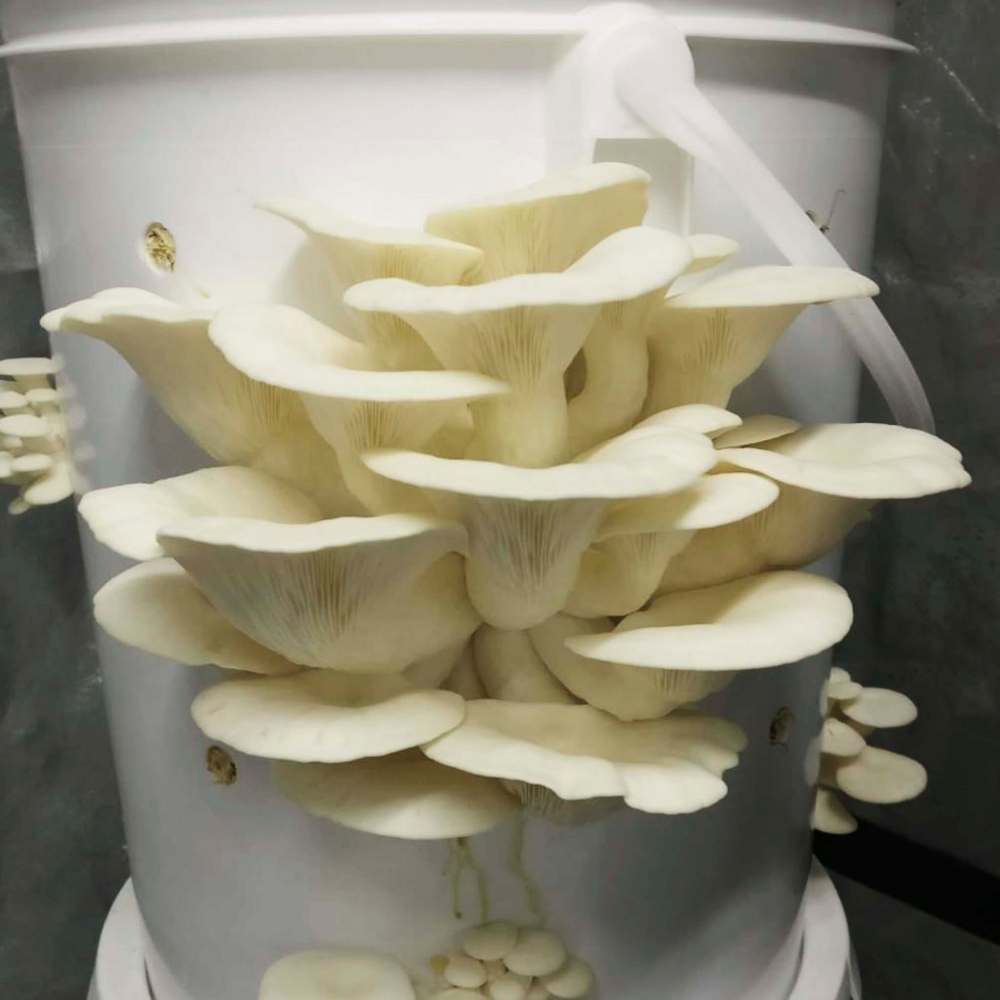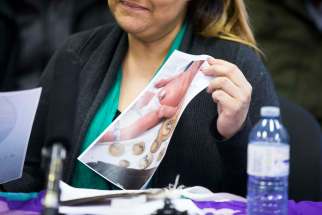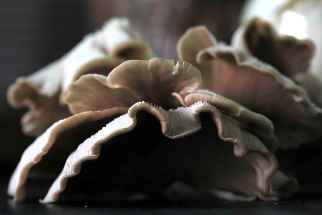Pearls of the cellar Grower battles back from chronic illness by raising oyster mushrooms for city restaurants
Read this article for free:
or
Already have an account? Log in here »
To continue reading, please subscribe:
Monthly Digital Subscription
$0 for the first 4 weeks*
- Enjoy unlimited reading on winnipegfreepress.com
- Read the E-Edition, our digital replica newspaper
- Access News Break, our award-winning app
- Play interactive puzzles
*No charge for 4 weeks then price increases to the regular rate of $19.00 plus GST every four weeks. Offer available to new and qualified returning subscribers only. Cancel any time.
Monthly Digital Subscription
$4.75/week*
- Enjoy unlimited reading on winnipegfreepress.com
- Read the E-Edition, our digital replica newspaper
- Access News Break, our award-winning app
- Play interactive puzzles
*Billed as $19 plus GST every four weeks. Cancel any time.
To continue reading, please subscribe:
Add Free Press access to your Brandon Sun subscription for only an additional
$1 for the first 4 weeks*
*Your next subscription payment will increase by $1.00 and you will be charged $16.99 plus GST for four weeks. After four weeks, your payment will increase to $23.99 plus GST every four weeks.
Read unlimited articles for free today:
or
Already have an account? Log in here »
Hey there, time traveller!
This article was published 11/01/2019 (2526 days ago), so information in it may no longer be current.
The suburban sprawl of Island Lakes isn’t the first place one might expect to find a modest subterranean mushroom farm.
But then Jarrett Moffatt isn’t your average mushroom farmer.
The gregarious Winnipegger was working in Toronto at his dream job — copy writer for the marketing agency Taxi — when he was diagnosed with ankylosing spondylitis, an inflammatory form of arthritis that affects the spine. This autoimmune disease, which attacks the tendons and ligaments of the joints and can fuse the vertebrae together, rendered him unable to work or even sit without excruciating pain.
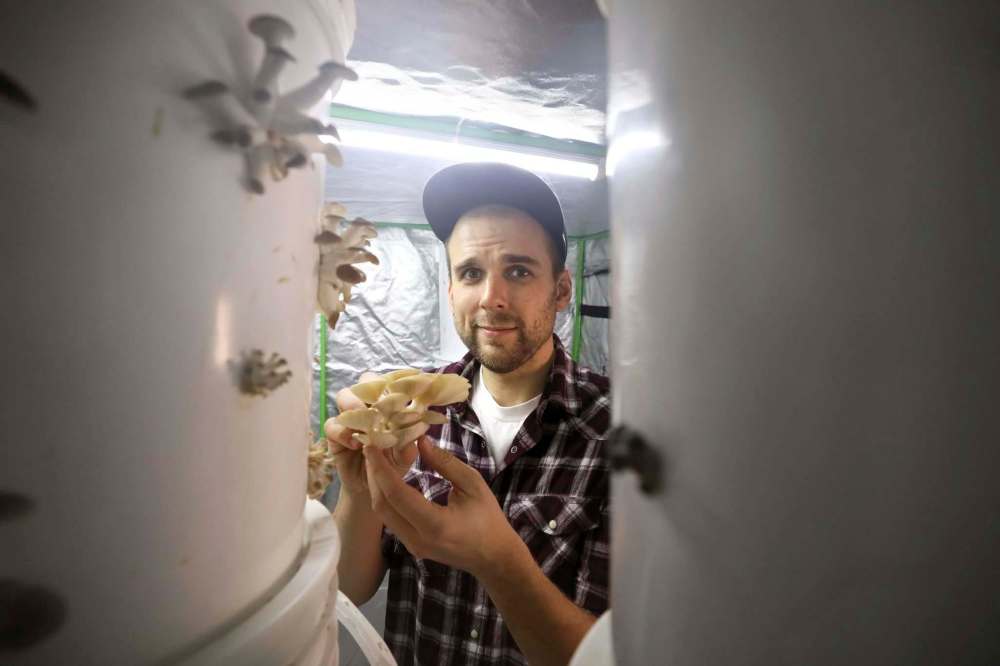
He returned home to live with his mother, where a succession of drug treatments failed to combat his chronic condition.
“I couldn’t write for a really long time. I couldn’t sit in a chair for more than an hour,” Moffatt recalls, his dimpled smile replaced briefly with tears. “I kind of came to terms with the fact that maybe I wouldn’t get better and I needed to do something else.”
Last year, he started a project that was one part make-work, one part make-joy: cultivating oyster mushrooms in his house.
The magic of mushrooms
Parts of the mushroom-growing process feel more like a science experiment than agriculture.
Prairie Oysters’ owner Jarrett Moffatt starts the process of cultivating his crop of oyster mushrooms by cloning one in a petri dish.
Parts of the mushroom-growing process feel more like a science experiment than agriculture.
Prairie Oysters’ owner Jarrett Moffatt starts the process of cultivating his crop of oyster mushrooms by cloning one in a petri dish.
He saves a mushroom from his harvest and, in front of a HEPA filter to prevent contaminants, places a tiny grain-of-rice-sized piece of it on the dish… and waits. In a couple of weeks, the spores will have filled the dish with mycelium, a mass of wispy filaments that are the vegetative growth of mushrooms.
Moffatt then inoculates a jar of rye grain with mycelium from the petri dish, where it expands further. From there, it’s transferred to breathable plastic bags of sawdust — mushroom spores don’t rely on chlorophyll to germinate, so they use the sawdust for nourishment — where it spends another couple of weeks. This product is called spawn; if you want to grow a particular mushroom variety and don’t have one to clone, you can purchase prepared spawn.
The spawn is then transferred to a growing medium — Moffatt uses straw from Horizon Livestock, which he sterilizes by washing it in hydrated lime — in large pails into which small holes have been drilled; they’re initially swathed in plastic wrap.
“You have to choke (the mushrooms) at first so they don’t have enough oxygen, and then once they get to the surface, they know they can start pinning,” Moffatt explains, pointing to the small stalks with tiny caps poking out of the holes. “Once the whole bucket is expanded, it’s just bursting, they get a whiff of fresh air and they start to grow.”
The buckets will provide two or three “flushes” of mushroom growth before they need to be replaced.
“It’s pretty amazing — every time it grows, I’m amazed,” Moffatt says.
“Chronic pain can be isolating and incredibly boring,” he says. “That’s the reason I’m growing them. The reality is I didn’t want to be a 32-year-old man living at home and growing mushrooms in his mom’s basement. But that’s just where I’m at.”
He set up an indoor grow operation that now includes a six-foot-by-six-foot tent, kept at 80 per cent humidity, filled with stacks of white buckets into which he’s drilled 1.5-centimetre holes from which the mushrooms — recognizable by their pale colour, almost flat caps and white, wavy gills — sprout.
On a recent January day, he’s just harvested, but a couple of the buckets are already sporting a second flush of tiny mushroom stalks — pin clusters — that will eventually expand into bouquets of white-capped Phoenix oysters.
Moffatt was not a fungus aficionado before last year; his company evolved out of a combination of necessity and marketing savvy.
“I was Googling what I could do from home where something else is doing most of the work. I was so sick, I could barely get out of bed in the morning, so if I’m sick upstairs and I come down, they’re growing (on their own),” he explains.
In addition to the crop’s relative self-sufficiency, locally grown oyster mushrooms are a rarity (Loveday, Manitoba’s best-known mushroom producer, sells them but doesn’t grow them here), making them a better bet than, for example, another addition to the microgreen market.
“I did my research and I found something no one else was doing,” Moffatt says, adding that oyster mushrooms have a shorter shelf life and are more delicate than the more familiar button or cremini mushrooms.
Moffatt’s advertising background also came in handy when marketing his company, which he gave the cheeky name Prairie Oysters (slang for bull testicles). He launched an Instagram account full of stunning pictures of his mushrooms, which, with their pearlescent white colour and swirling gills, have an otherworldly, alien beauty. He created a logo and invested in packaging.
In November 2017, Dustin Peltier of hyper-local catering company Loaf and Honey became his first chef customer.
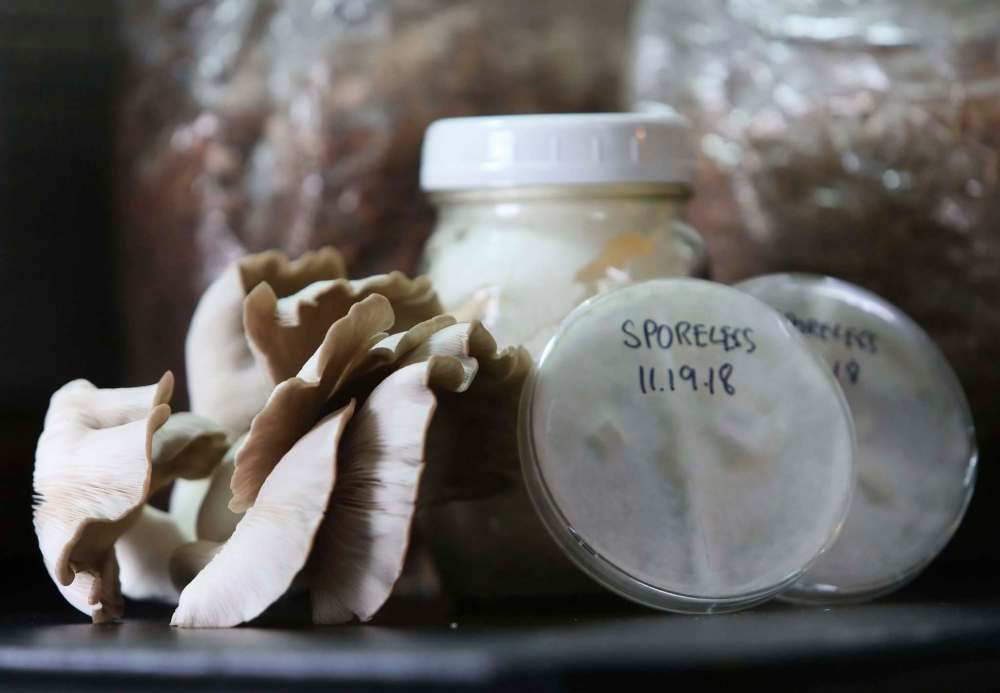
“It started from there,” says Moffatt, who also branched out to farmers markets last summer. “Yujiro chef Ed (Lam) called me one day and said ‘Your mushrooms are beautiful,’ so I give two pounds every week to Ed.”
After just a year, Prairie Oysters mushrooms have appeared on the menu at several local restaurants, including Little Goat, Deer + Almond and Oxbow.
For Moffatt, the rewards go beyond the monetary (well beyond, since he jokingly says Prairie Oysters’ current profits are enough to cover his cellphone bill). Growing oyster mushrooms gave him a purpose when his world suddenly became small.
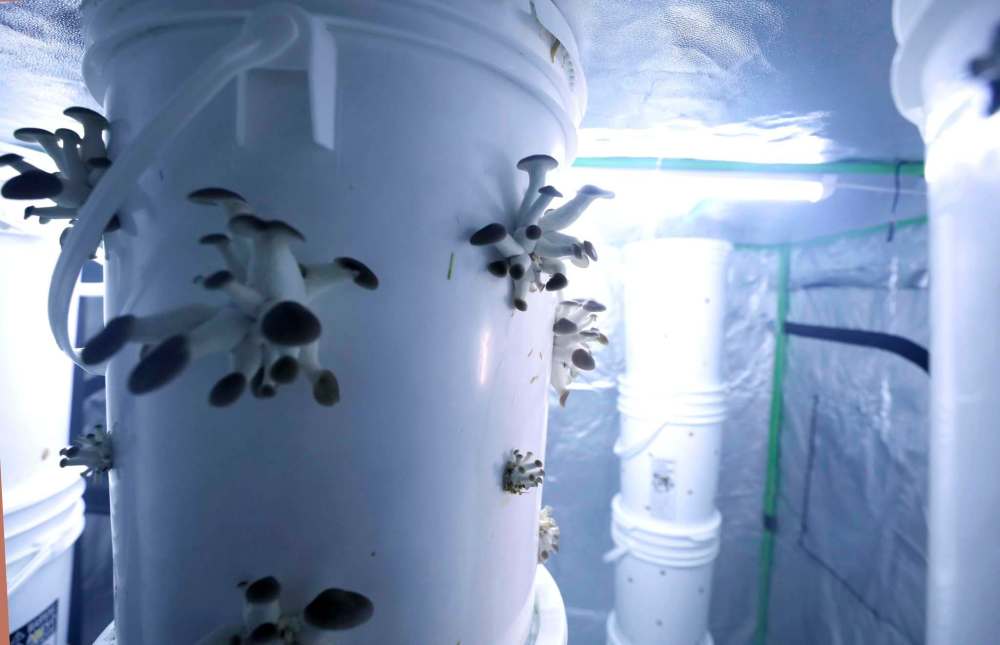
The cultivation not only provides him with an involving hobby, but forges connections, both tangible and virtual, with a community beyond the basement — customers, cooks, farmers and mycophiles who just love talking about mushrooms.
“This is nice and it’s giving me something to do,” he says. “I get to post on Instagram. Chefs buy them.”
One of those chefs is Ross Jeffers, who runs the cheerful Wolseley-area breakfast/lunch spot 1958 Cafe.
Jeffers discovered Prairie Oysters “by accident through social media,” after Moffatt started following the 1958 Cafe Instagram account. He contacted Moffatt to inquire if his product was available for restaurants and has been an enthusiastic customer ever since — though he says as the enterprise has expanded, he now has to plan ahead to make sure he gets the product he needs.
“We will sell them out as soon as I get them,” he says. “I had four pounds last week; I sold them out in under two days.”
It’s in the bag
Prairie Oysters proprietor Jarrett Moffatt has repurposed part of his mushroom production into a sideline business: Oyster Sacks.
Intended for use with small grow operations, these bags of mycelium (mushroom vegetative growth) and sterile sawdust subtrate produce lots of carbon dioxide, which plants thrive on. The gas is released via a micron filter patch on the bag.
The sacks, which range in price from $40 to $120, will produce carbon dioxide for about three months.
Moffatt offers free shipping within Canada and takes orders at 204-930-6139 or jarrett@prairieoysters.ca.
Jeffers uses the mushrooms on his breakfast menu, even paying homage to the name in his specials: last weekend’s Prairie Oyster featured butter-basted mushrooms with thyme and greens atop scrambled eggs with toast and pan fries.
“We use local as much as we can,” says Jeffers, who buys bread and buns from five different Winnipeg bakeries for his sandwiches, benedicts and breakfasts. “And as a small business, if I don’t support small business, what am I thinking?”
Of course, the restaurateur is always on the lookout for bargains, but he says both the quality and the personal connection make Prairie Oysters worth the relatively steep price (the wholesale cost is about three times the retail cost of button mushrooms, though it’s comparable to supermarket oyster mushrooms).
“They’re so rich. They’re so good. And I know the guy that grew them,” Jeffers says. “For me, personally, that’s what’s important. It’s just better.”
For Moffatt, being productive, social and getting out to deliver his weekly orders has been a step toward feeling well.
“It’s about networking and being able to talk to people again,” he says.
Asked if he has any desire to expand beyond the basement, he hesitates.
“If I could get it to a place where somebody else wanted to do the grunt work, somebody much younger and healthier than me… I’ve got farmer friends now — it’s so weird, I didn’t have farmer friends a year ago — but there are people who are into that. I’m more about branding and stuff.”
jill.wilson@freepress.mb.ca
Twitter: @dedaumier
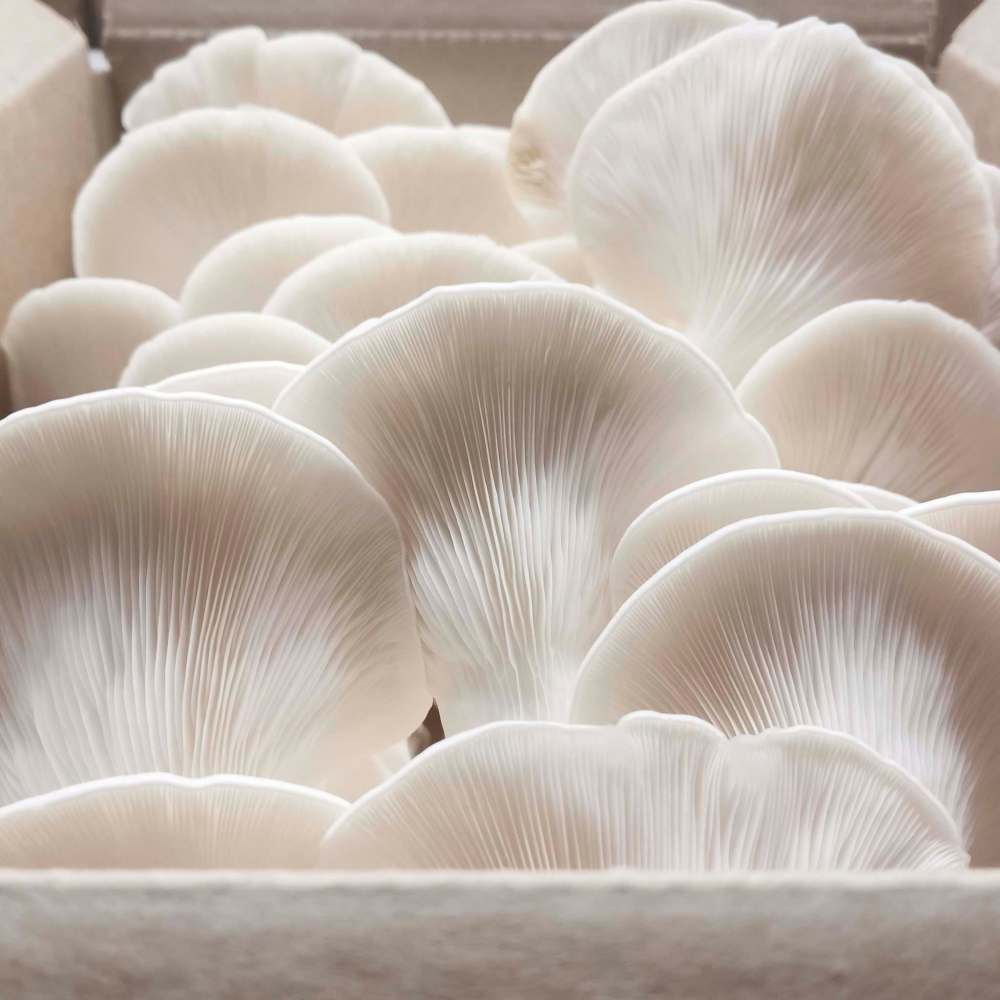
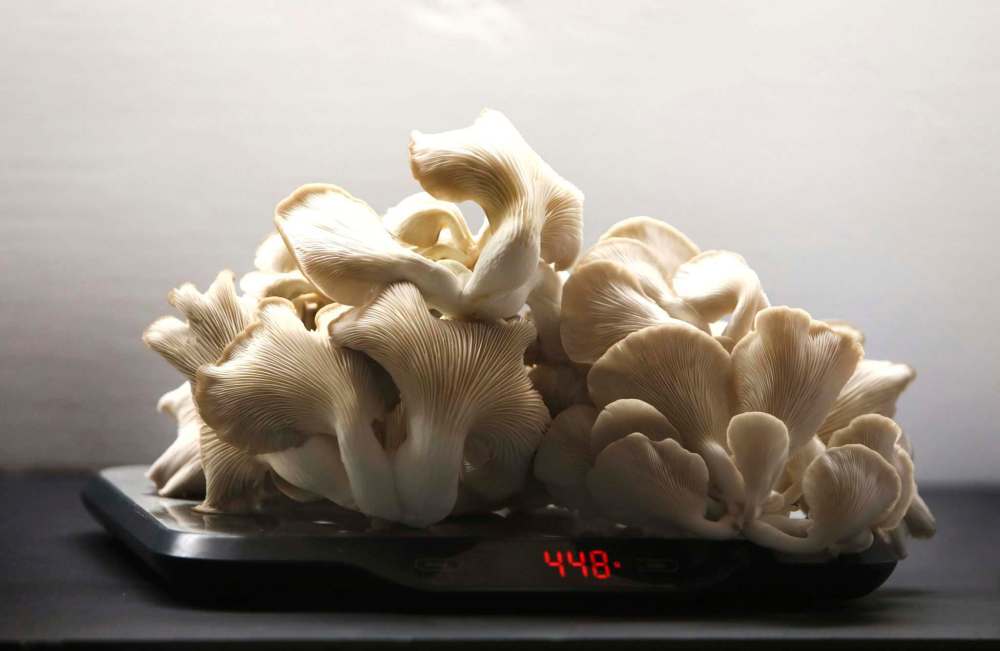
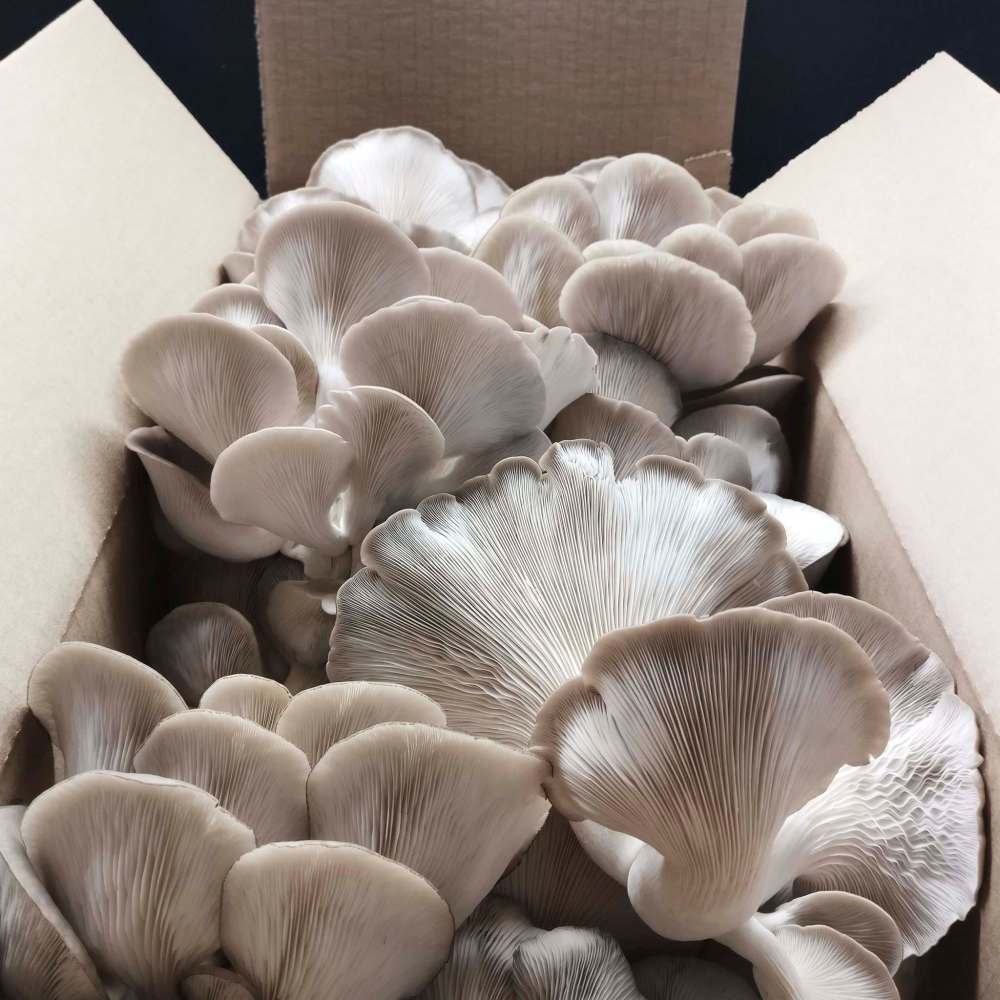
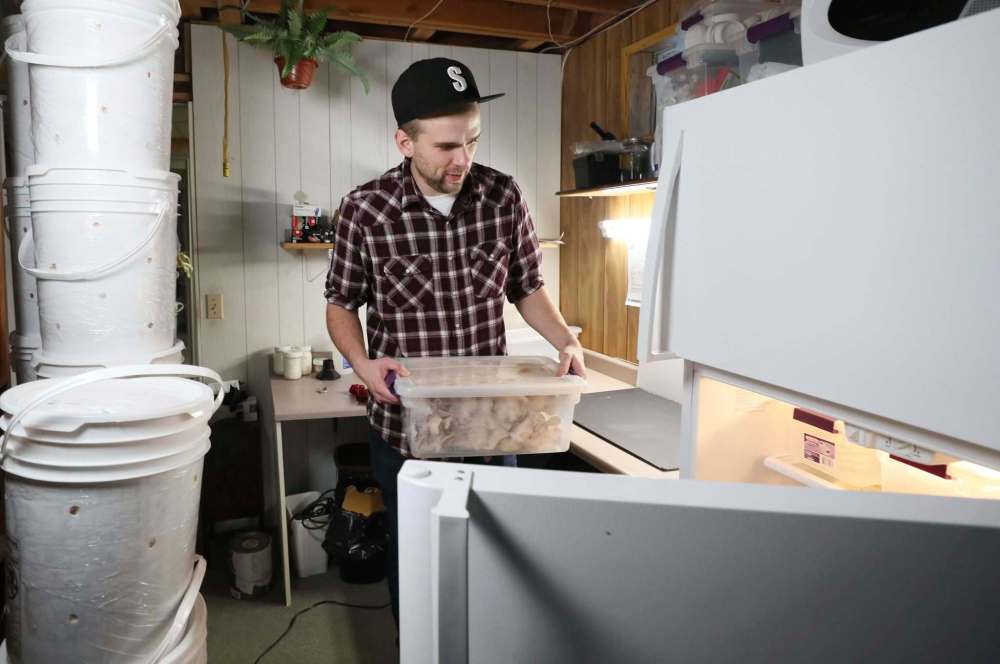

Jill Wilson writes about culture and the culinary arts for the Arts & Life section.
Our newsroom depends on a growing audience of readers to power our journalism. If you are not a paid reader, please consider becoming a subscriber.
Our newsroom depends on its audience of readers to power our journalism. Thank you for your support.

